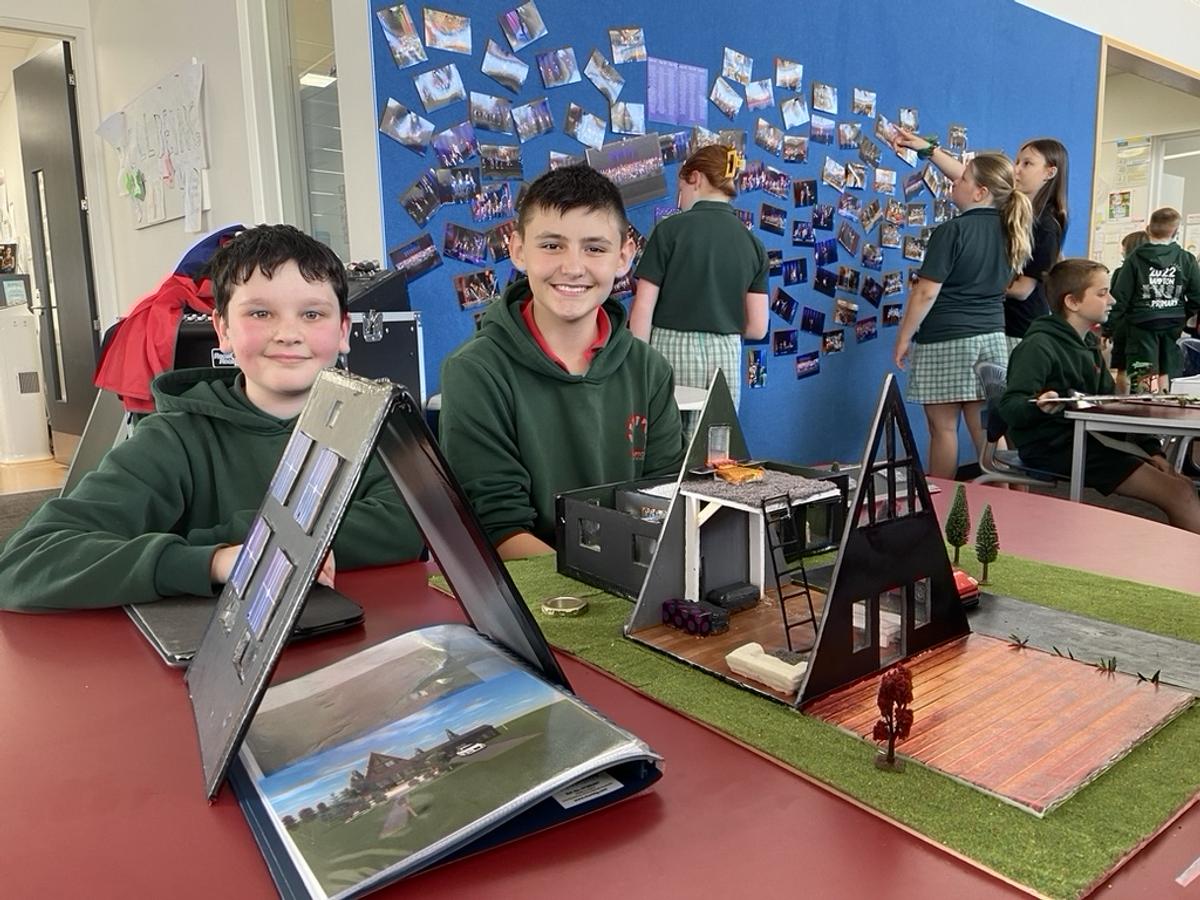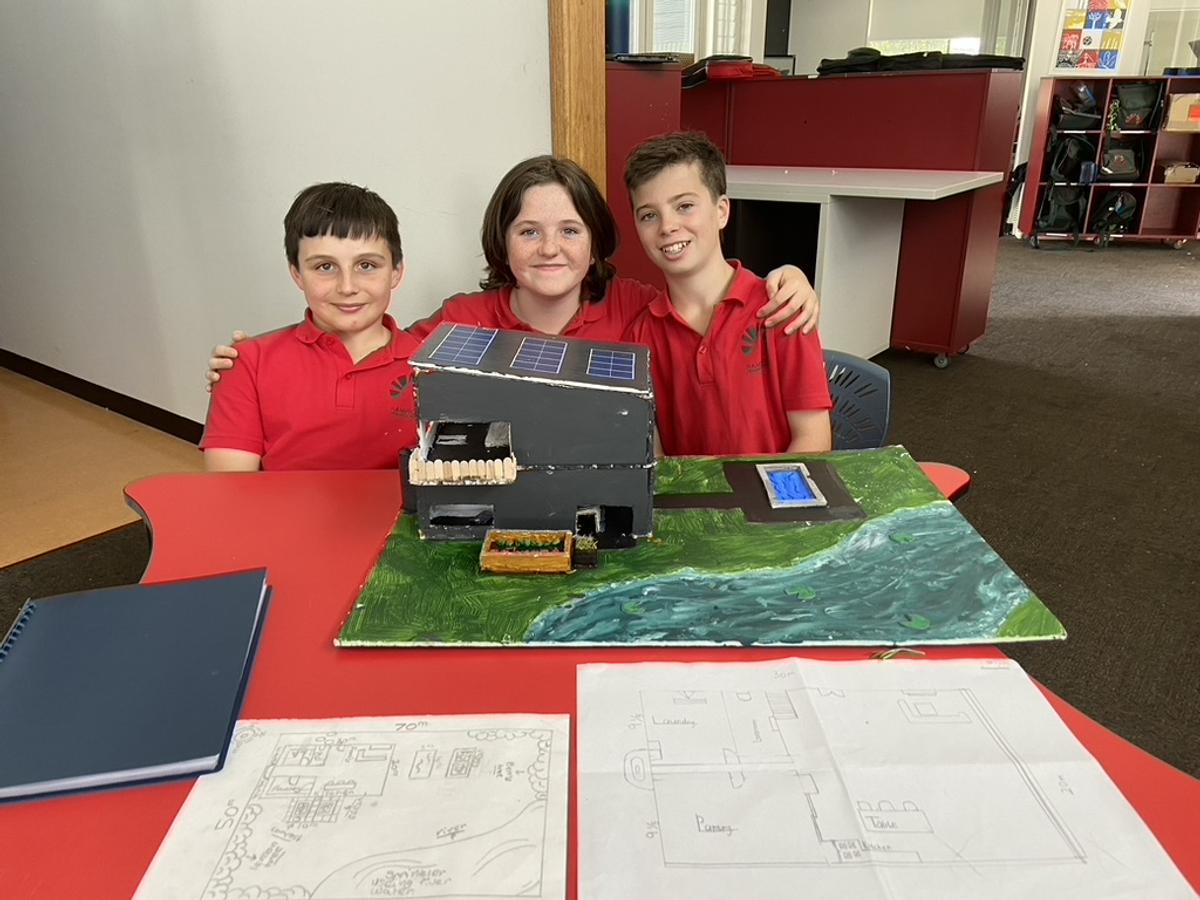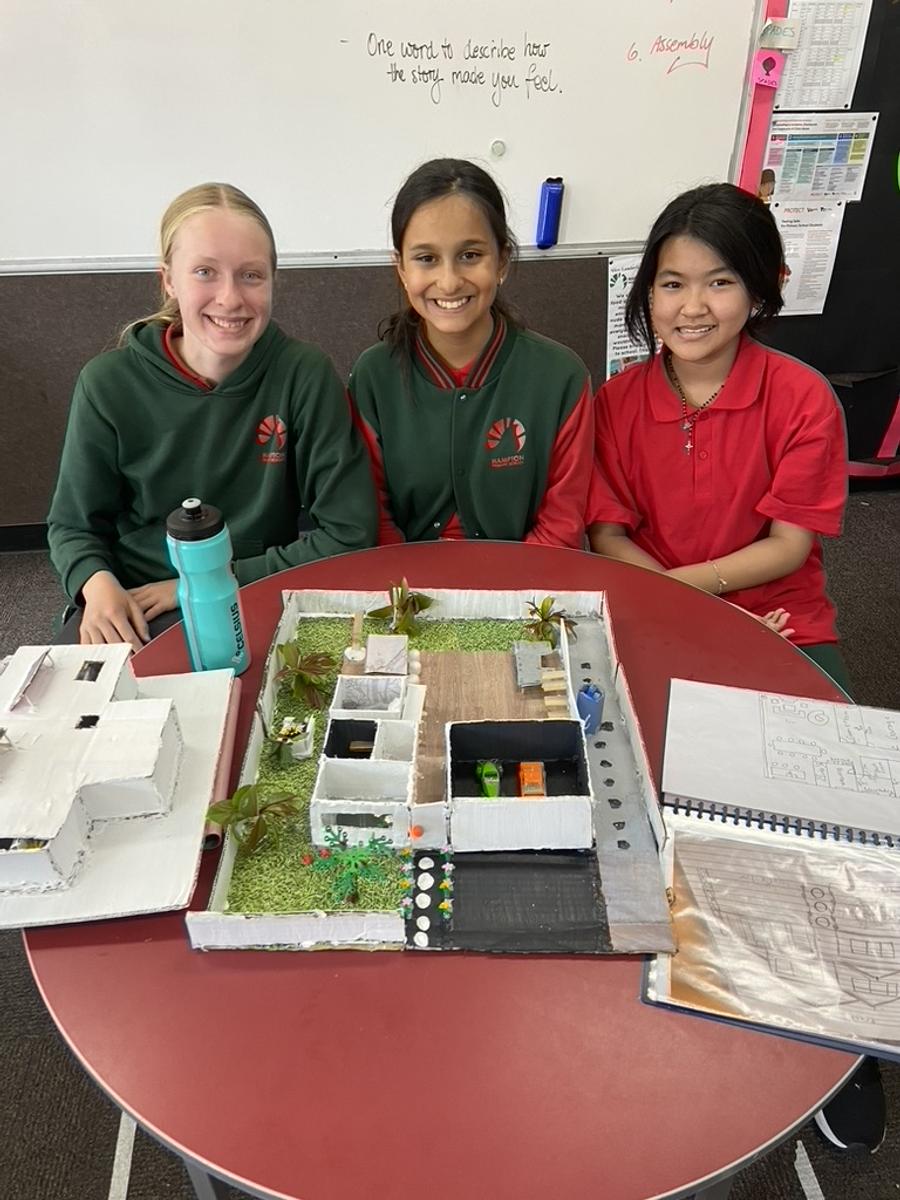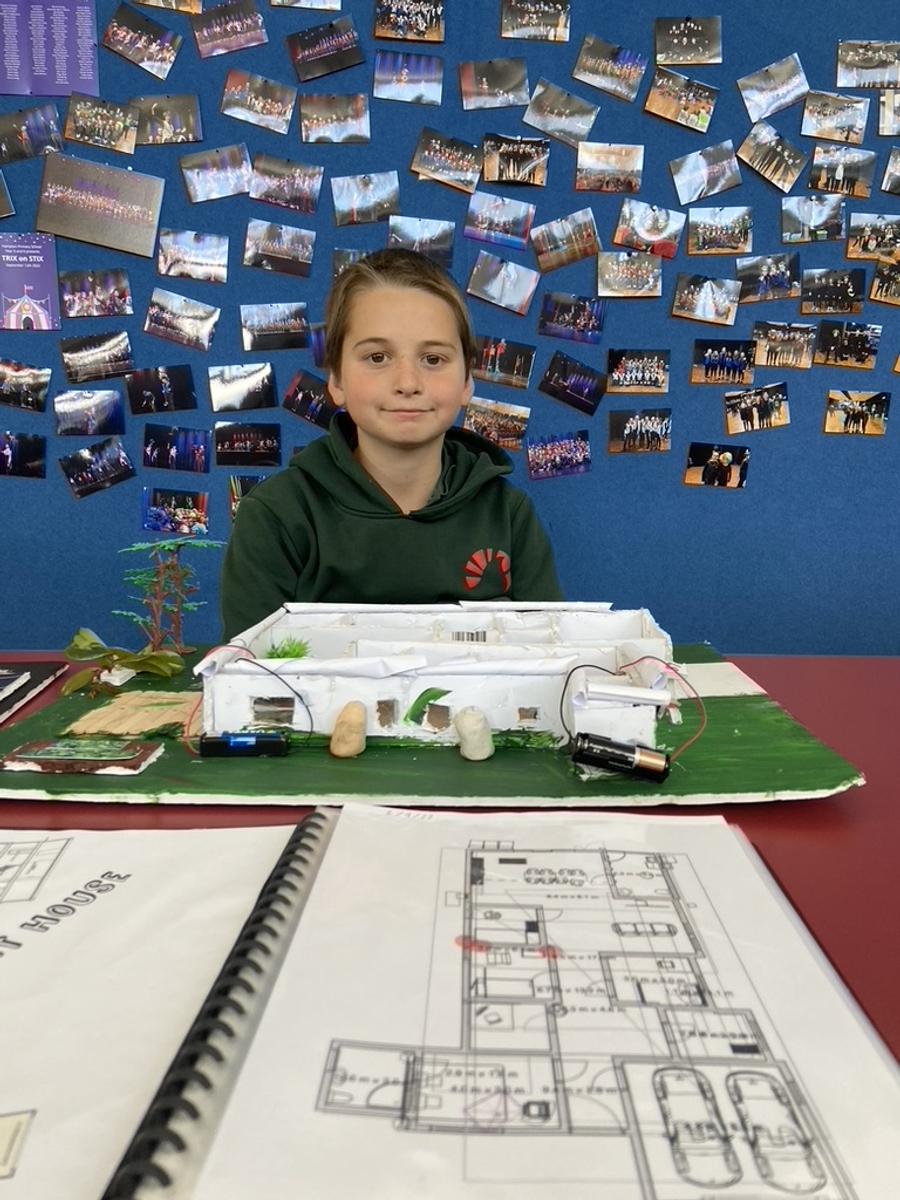Curriculum
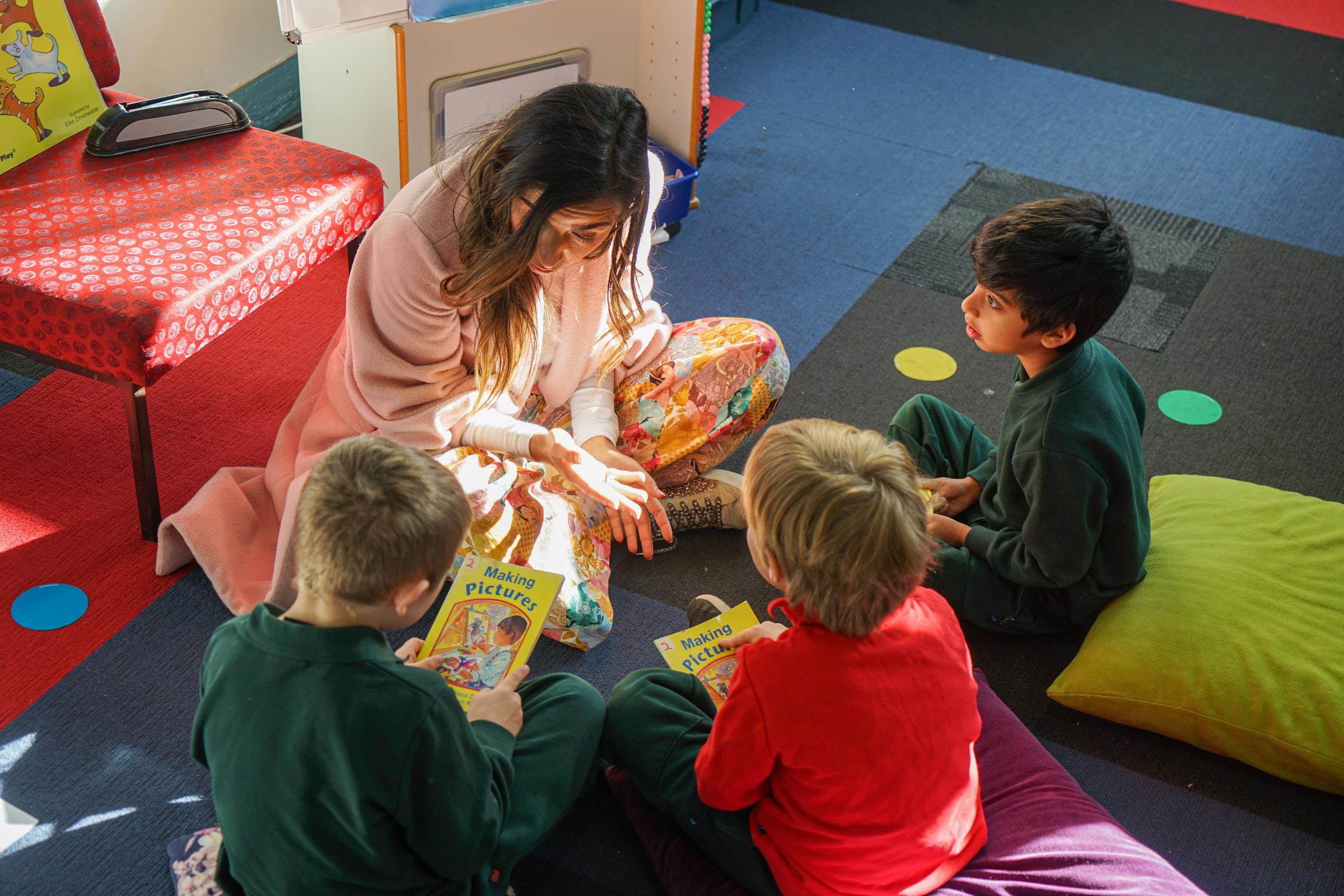
Year 6 Energy Efficient House Expo
The Year 6 students learned about electricity and sustainability for their Physical Science Inquiry unit. In small groups, they created electrical circuits, researched passive design elements (that reduce the consumption of energy in homes) and incorporated these ideas into a house design. They made connections between the generation and consumption of electricity and the potential environmental impacts and understand that changes need to be made to allow for a more sustainable future. The ideas, research, and examples were kept in a Design Journal which was also used to communicate their ideas for how we can make positive changes to our society, with regard to our power consumption. The house design was drawn as a floor plan to scale and students worked collaboratively to convert it into a 3D model which was displayed at the Energy Efficient House Expo. The models generated conversations about the students’ learning and consolidated their understanding of sustainability, power consumption, and carbon footprint.
Great work Year 6!
Timothy Bernau | Assistant Principal
Learn: Maths at Home - Top 5 Tips for Parents from the Mathematical Association of Victoria
Helping your kids to do maths at home can be a positive experience. Here are our top five tips to help you keep calm and carry on!
- LEARNING MATHS IS ABOUT STRATEGIES
Much of the actual maths is the same as what you may have learnt. Although learning maths is becoming more about understanding the reasoning and using a variety of different strategies to do maths. The strategies you learnt at school are still valid too! Teachers value students using many strategies to solve problems and develop thinking. - ASK QUESTIONS
You don’t have to know the answers! Nor do you have to know how to get there. Just ask questions and let your child think it through. Here are some of our favourites: • What thinking did you use to get this far? • What else could you try, is there another way? • What could a next step be? • How could you find out more about what to do? • Do you think others may do something different? - BE PERSISTENT, LEARN TOGETHER
Maths can be challenging. Rather than saying ‘I can’t do that’, or ‘It’s too hard’, say ‘I can’t do that yet,’ or ‘We will work it out together’. Research shows parental support is a major factor for student success at school. Celebrate achieving small steps in solving a problem. Persist, be supportive and remember to focus on the thinking, not getting answers. - SEE MATHS EVERYDAY
There is plenty of maths around you to develop numeracy skills, such as calculating, measuring, using numbers, interpreting data and graphs, recognising patterns, and using language to develop mathematical understanding. Ask questions about the maths in activities like cooking, exercise, sport, budgeting and shopping. Playing games is also a fun way to practice and experience maths. - STAY POSITIVE, KEEP CALM
Don’t pass on your baggage, this is not about you! Let your children experience maths positively, we need maths for everyday life, and maths graduates have excellent career opportunities. Don’t say ‘I was never good at maths’ or ‘I never liked maths’. Maths can, and should be, really fun!

